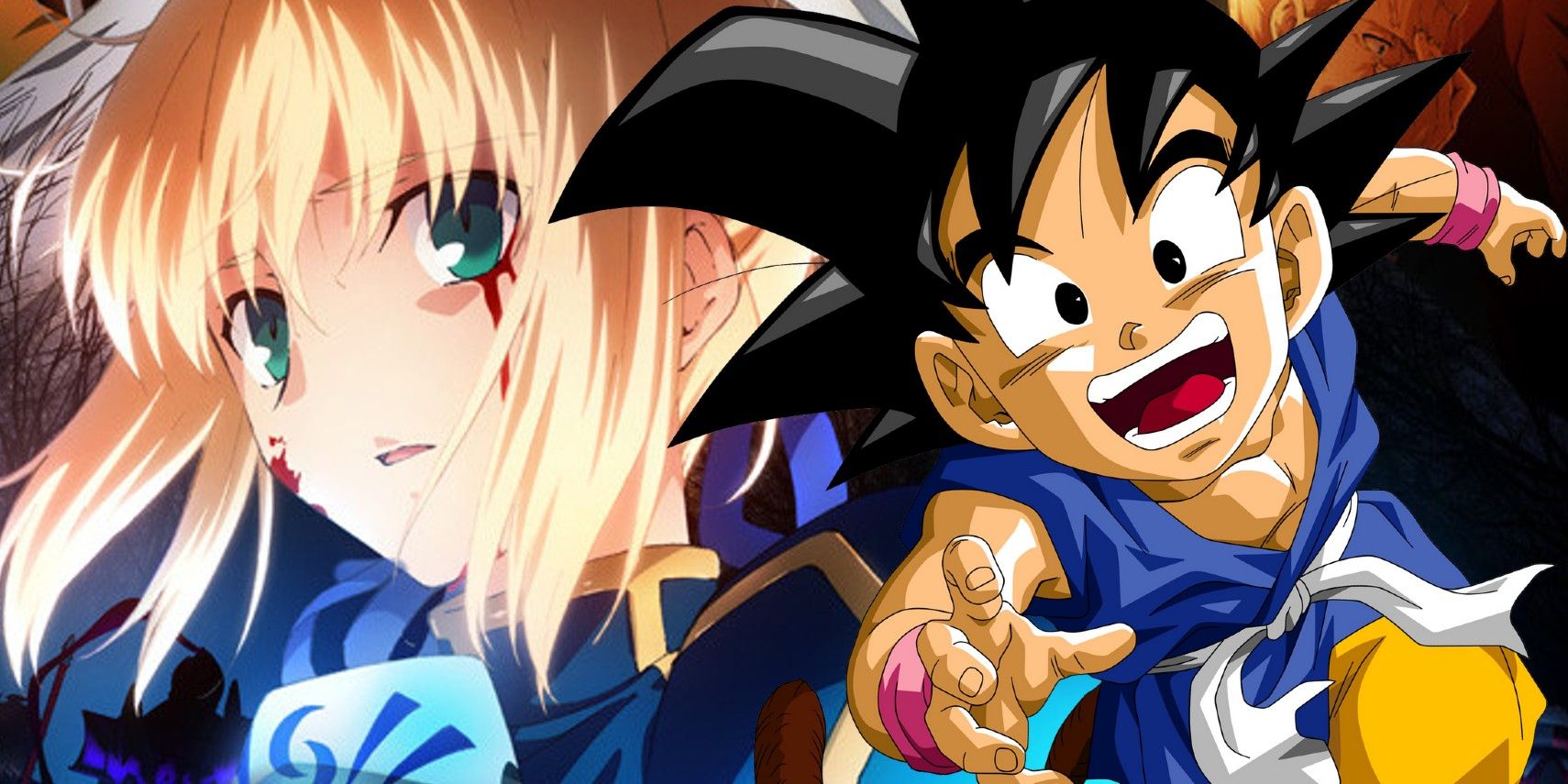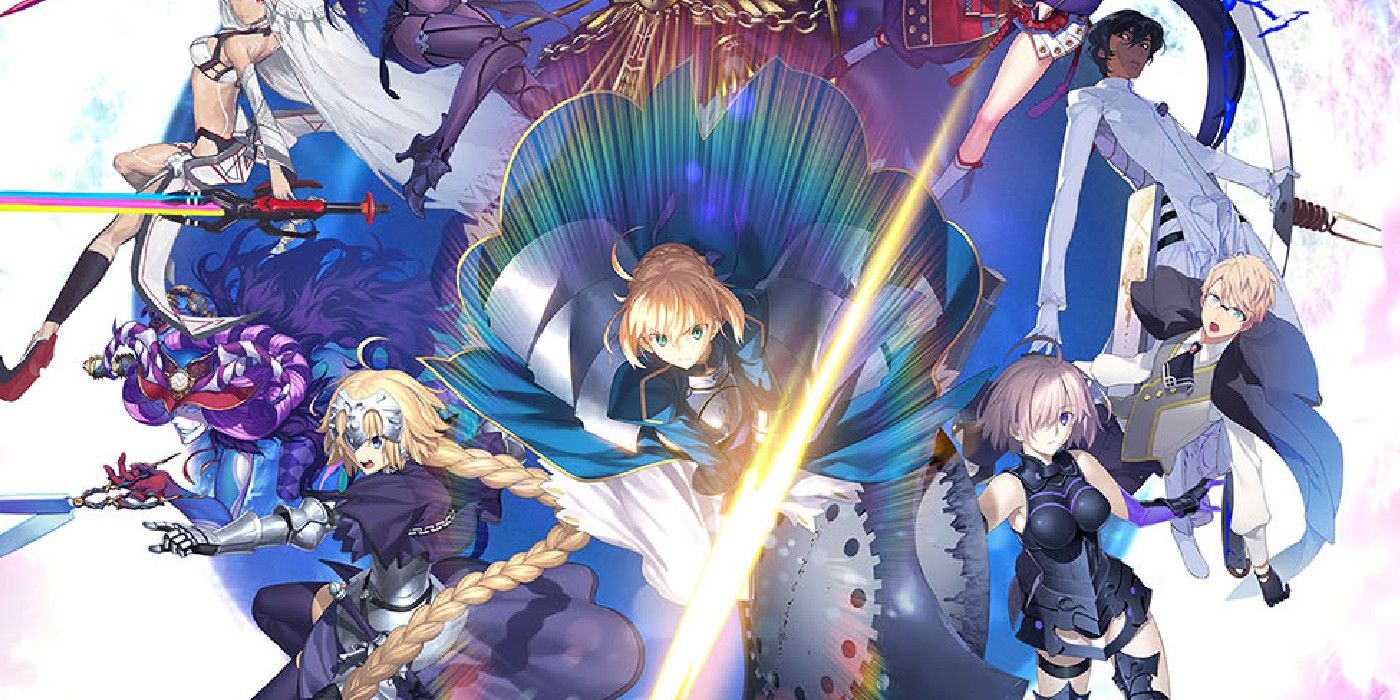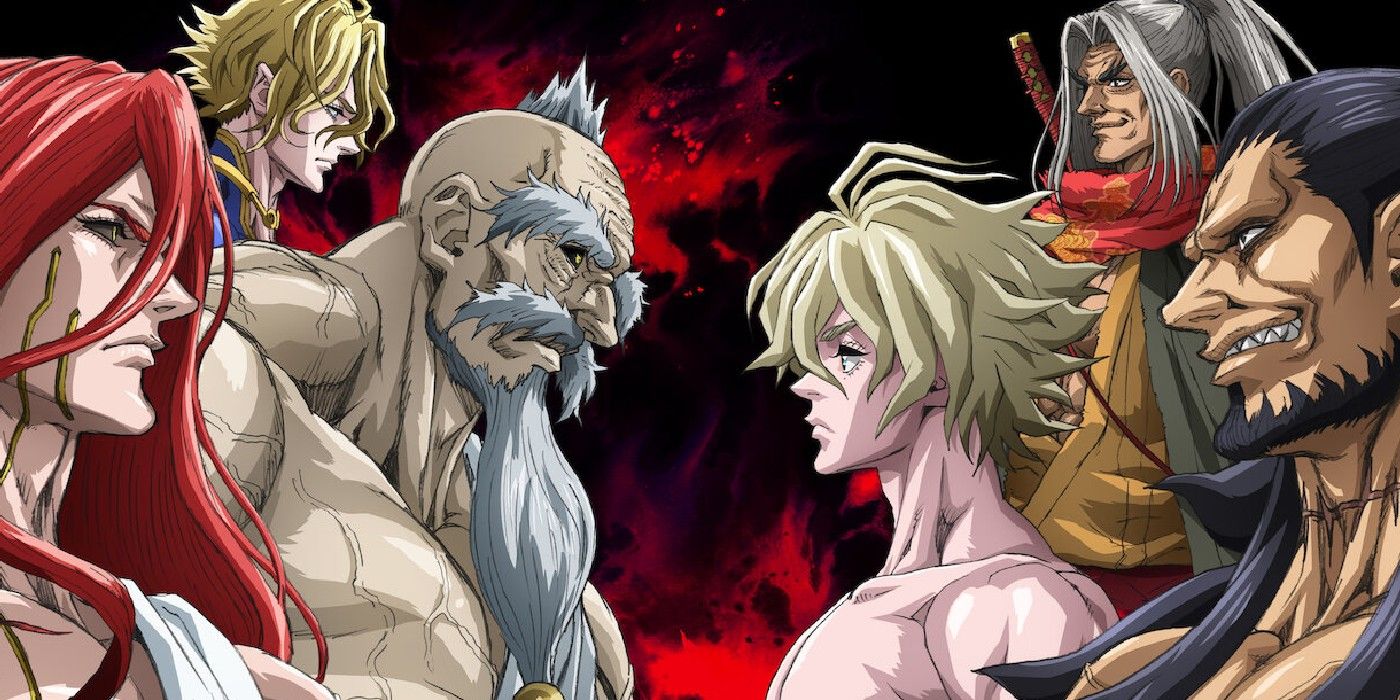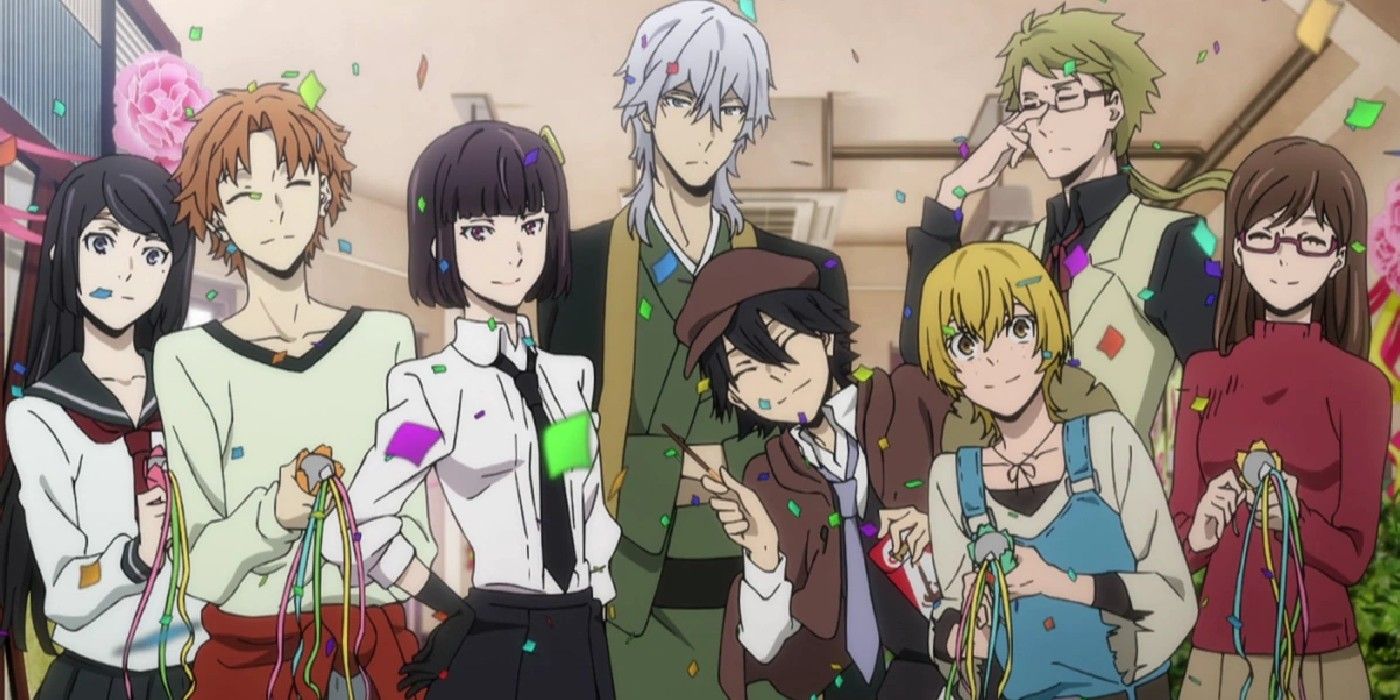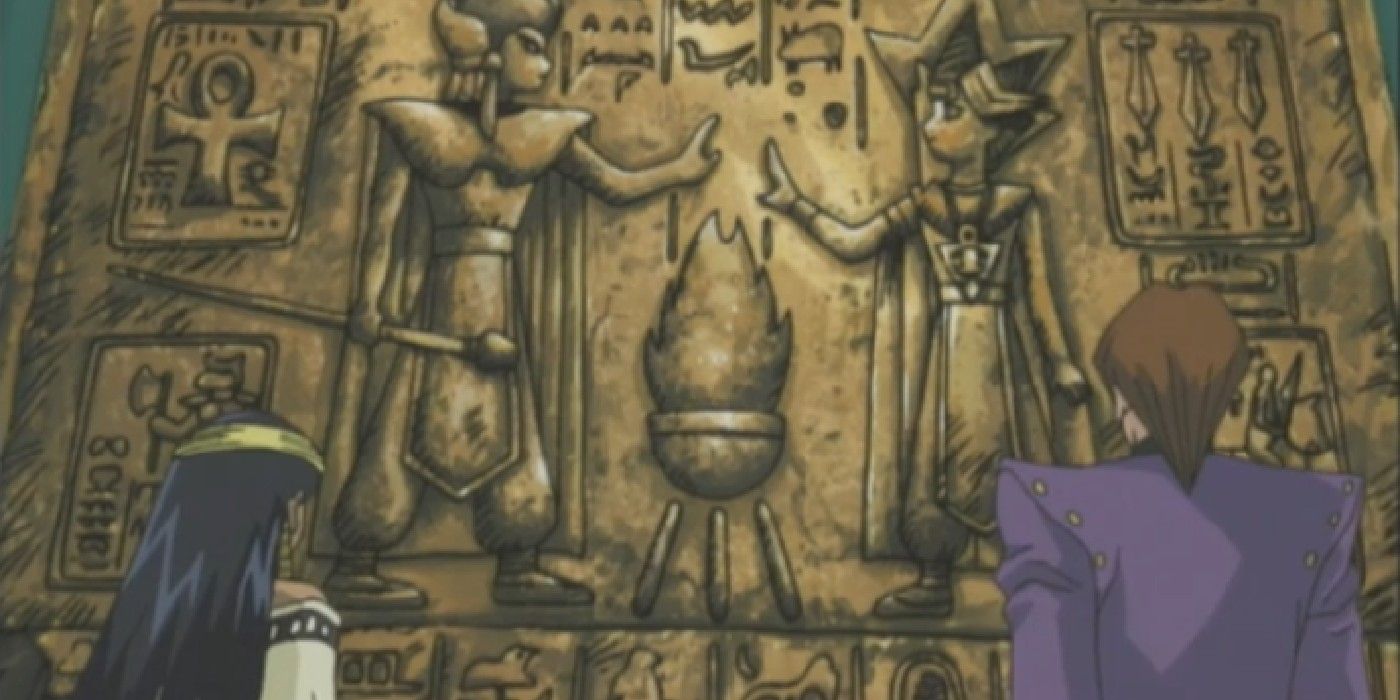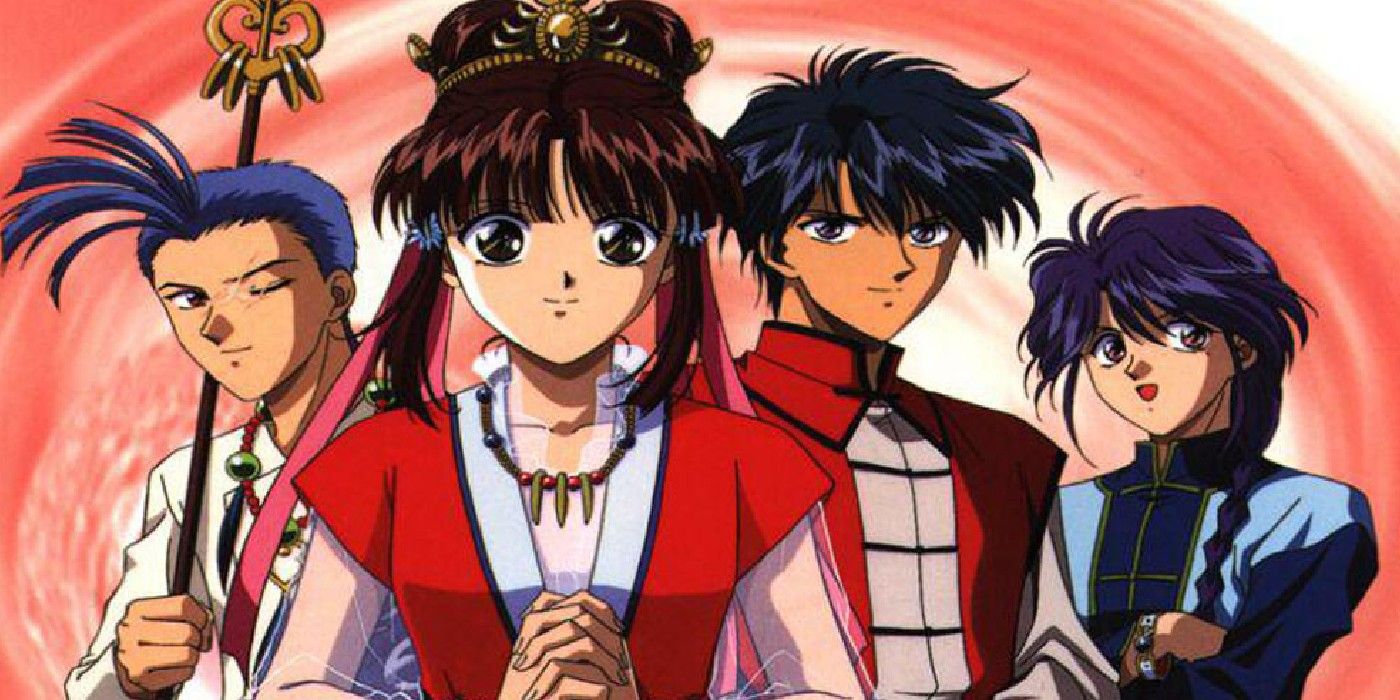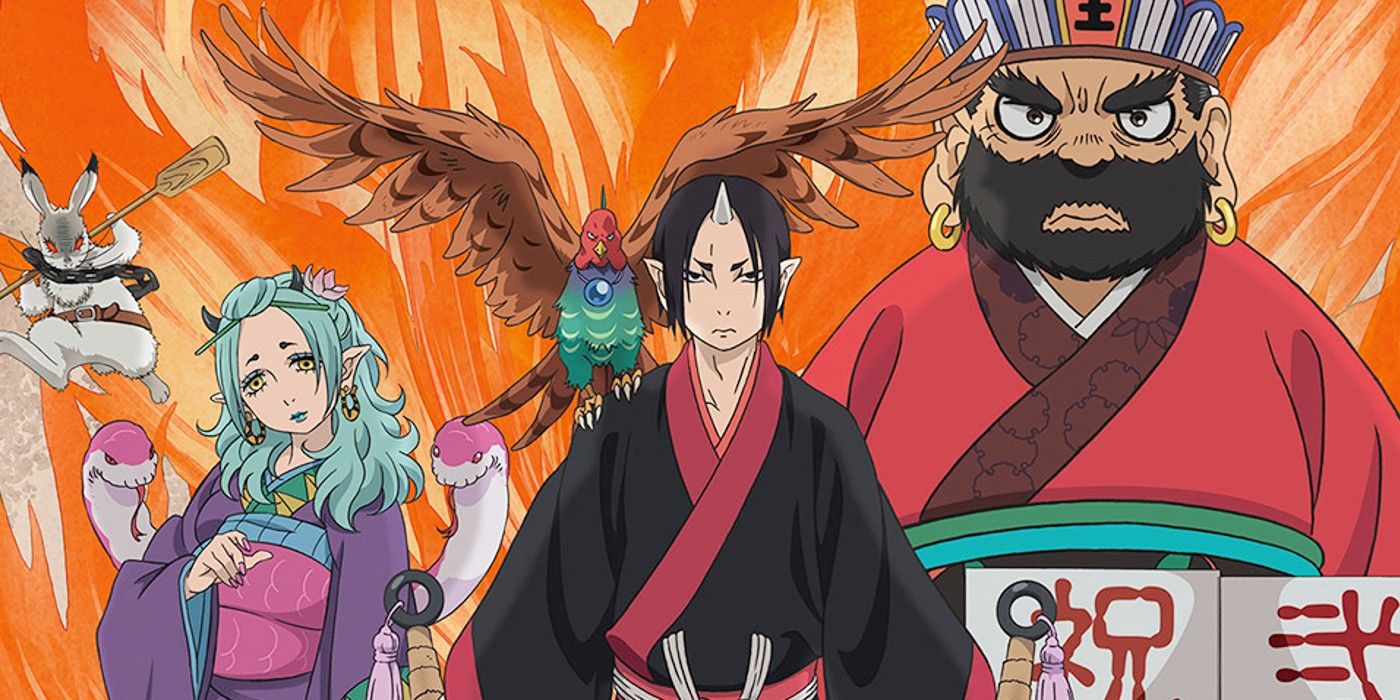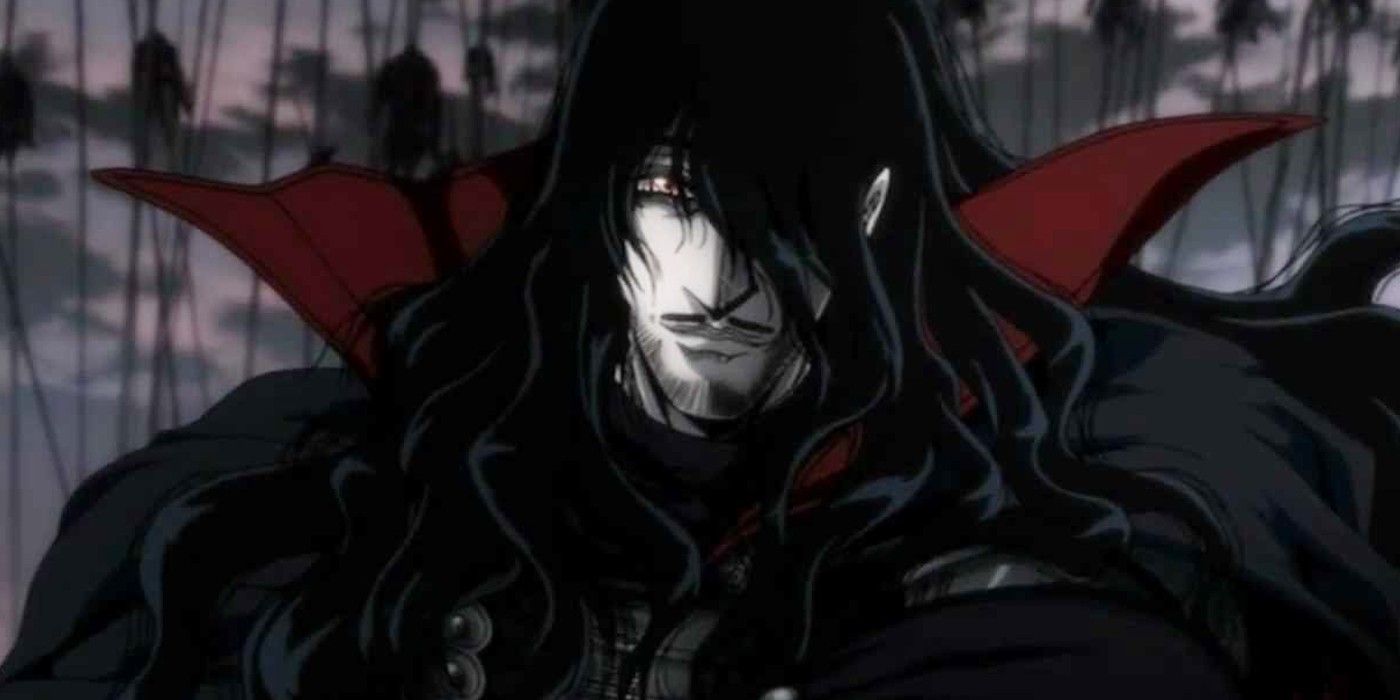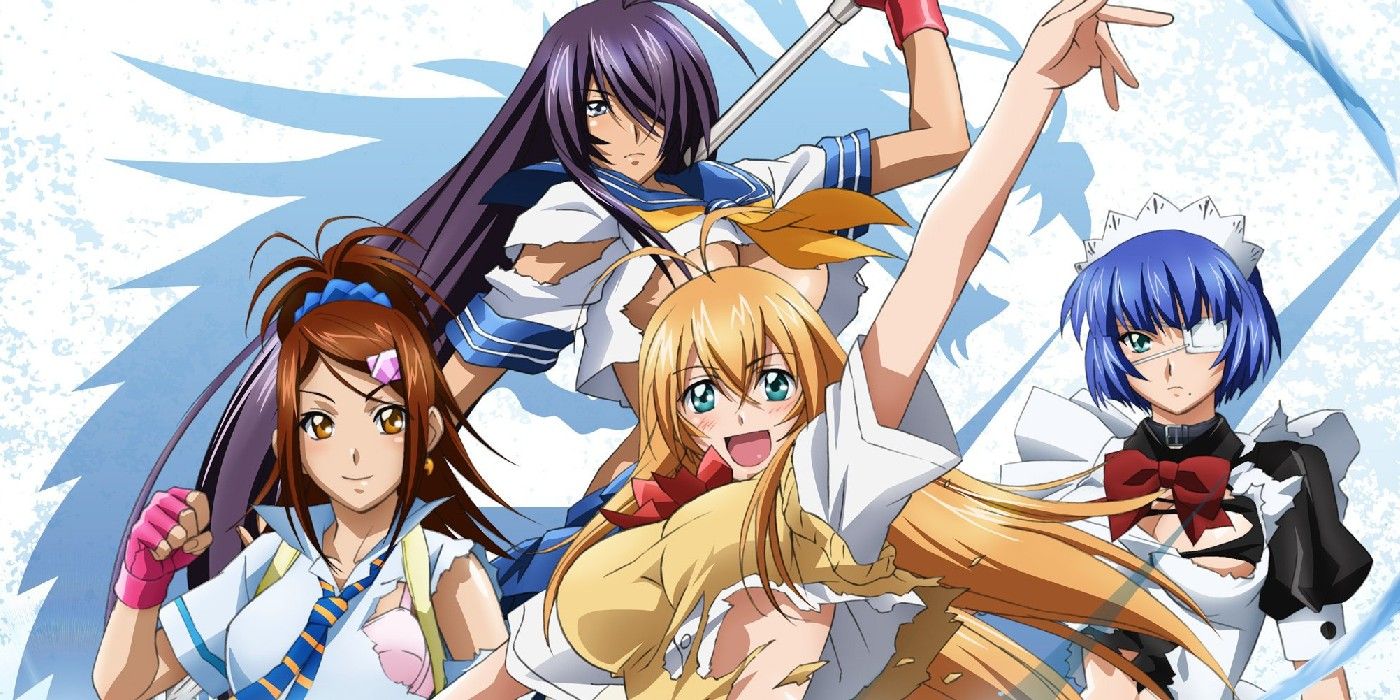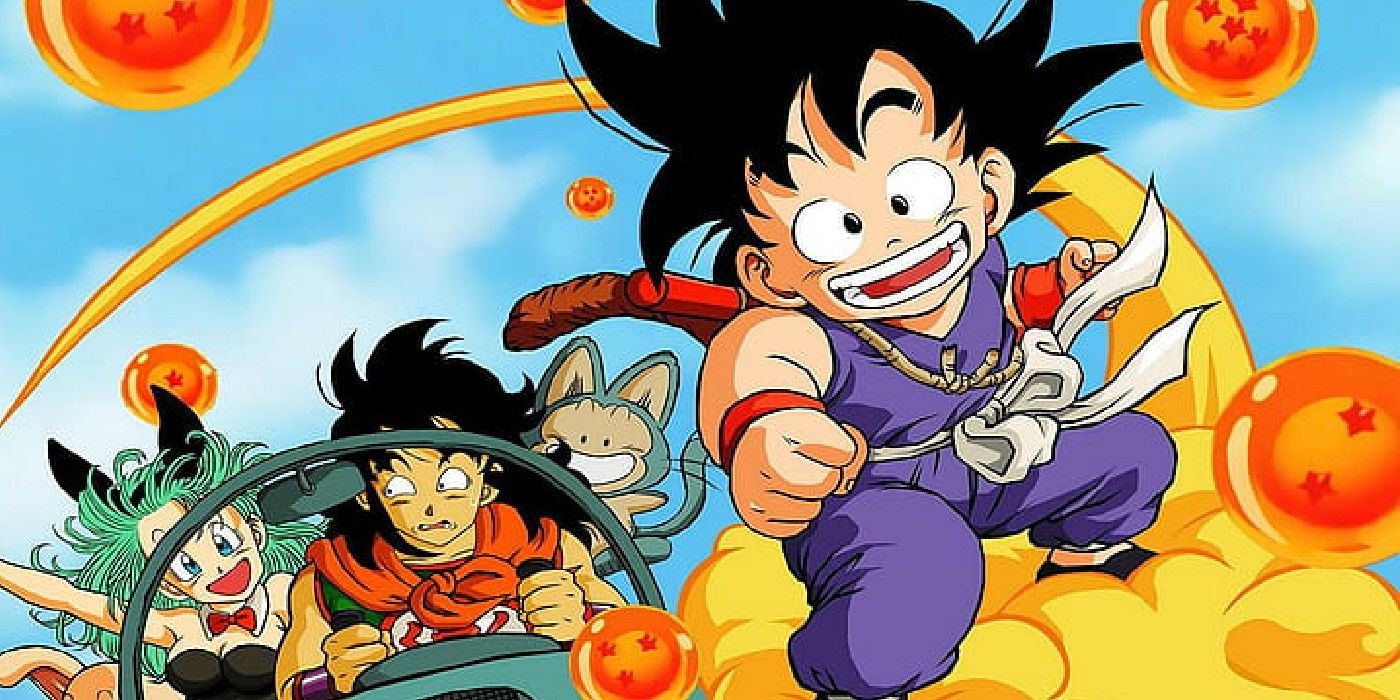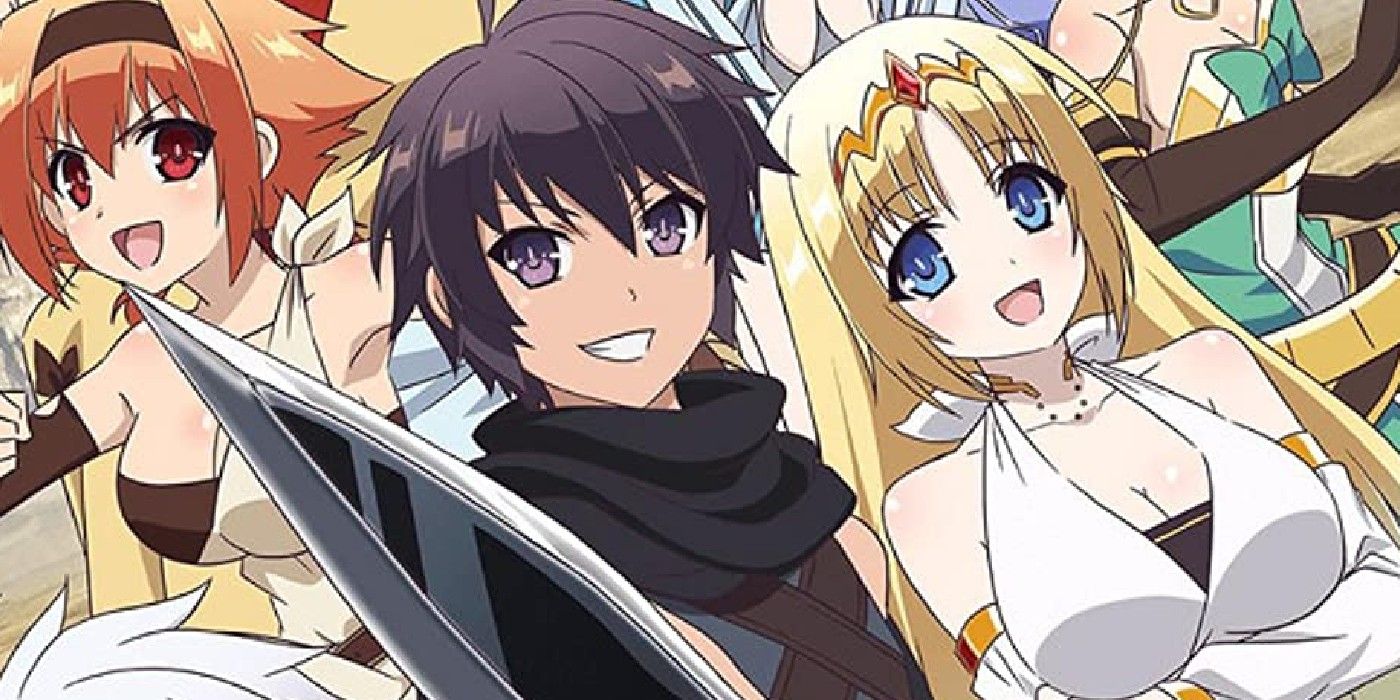Myths and legends from around the world have existed long before anime was even first thought of, which naturally makes it a great and endless well of ideas for character and narrative inspirations.
Like every other form of fiction before and after it, anime paid tribute to older folk tales by either loosely adapting them or remaking them entirely. Beyond these stories' anime trappings are familiar tales and heroes of old.
10 The Fate Series Is A Battle Royale Among Legendary Heroes & Villains
It's impossible to talk about the anime incarnations of famous legends without bringing up Fate/Stay Night and its myriad of spin-offs. The basic gist is that every few centuries, the Holy Grail War commences. The battle for the wish-granting Grail is waged by Masters and their Servants: Heroic Spirits derived from humanity's history and fiction.
That said, the Grail's interpretation of a "hero" is so loose that it could bring forth someone like the monstrous serial killer Bluebeard into the fray. The anime features countless mythical figures like Artoria Pendragon (a gender-bent King Arthur) and Gilgamesh, but the tie-in materials are filled with even more Servants who have yet to make an anime appearance.
9 Record Of Ragnarok Is A Fight To The Death Between Ancient Gods & Mankind's Heroes
Record Of Ragnarok operates in a world where all mythological pantheons are real. Additionally, every single god from Shiva to Zeus is sick of humanity and wants to wipe out all life on Earth. Brunhilde, a Valkyrie, proposed that the gods at least give the mortals a fighting chance, which the bloodthirsty higher powers agreed to.
Thus begins an epic brawl for mankind's fate, where deities fought humanity's representatives ranging from Adam from the Book of Genesis to Lu Bu, the strongest man in ancient China's warring states era. The gods obviously have the upper hand, but humanity's champions rose to the occasion as seen in some really gruesome fights.
8 Bungou Stray Dogs Gave Literary Icons Superpowers Based On Their Works
Instead of referencing ancient myths and legends, Bungou Stray Dogs updated itself by taking cues from the fiction written roughly a century later. Everyone in the cast is the anime reinterpretation of a certain literary icon, and they all have superpowers based on one or more of their most iconic works.
For example, Herman Melville's ability Moby Dick lets him summon a giant whale, while Mark Twain's power "Huckleberry Finn and Tom Sawyer" gives him two familiars named after his famous folk heroes. The anime features countless authors, including many prolific Japanese authors and even Dan Brown of The Da Vinci Code fame.
7 Yu-Gi-Oh! Duel Monsters Is Loosely Based On Egyptian Mythology
Yu-Gi-Oh! Duel Monsters is (in)famous for a lot of things, including its incredibly liberal take on Egyptian mythology. While children's card games as they were portrayed in the anime obviously didn't exist in ancient Egypt, some elements and visuals are actually accurate and based on real Egyptian beliefs and myths.
For example, the three God Cards derived their names and abilities from Egyptian deities and terminology. Many cards and even some duelists are named after Egyptian gods, such as the virtually unlikable Seto Kaiba taking a cue from the god of disorder, Set. Additionally, some of the Egyptian hieroglyphics are accurately translated texts, like Marik and Odion's tattoos.
6 Fushigi Yuugi's World Is An Amalgamation Of Chinese Legends & Myths
Something many fans appreciate about the classic shojo series Fushi Yuugi was how it introduced them to Chinese culture, particularly its mythology. The anime begins when the curious students Miaka and Yui get isekai'd into "The Universe Of The Four Gods," an unsubtle hint of what's in store for them.
Fushigi Yuugi's world is governed by the Four Auspicious Beasts of Chinese myths who the chosen priestesses must summon for the sake of each god's respective province. Additionally, each god has Celestial Warriors at their command who are all based on one of the 28 Mansions from the Chinese constellation system.
5 Hozuki's Coolheadedness Is About Bureaucracy Of Japanese Buddhism's Interpretation Of Hell
Hell (or a place of eternal judgment for sinners) is commonplace in every known religion, and Japanese Buddhism's vision of damnation is second only to Christianity's in terms of popularity. Hozuki's Coolheadedness is one of anime's most elaborate looks at Jigoku, which was reimagined as a bureaucratic nightmare.
Just as it's depicted in mythology, the multi-leveled Jigoku is ruled over by Lord Enma. Problem is, Lord Enma is a childlike goofball whose heart isn't really into micromanaging hell and judging the damned. Those jobs, instead, fell to his most trusted yokai aide Hozuki, a ruthless and sadistic oni who relishes the power his rank gives.
4 Hellsing Ultimate Is A Sequel To Bram Stoker's Dracula
Vampires are some of the oldest mythical monsters, and Dracula is the most iconic and influential. Hellsing Ultimate didn't just take notes from Bram Stoker's novel but continued where it left off. Even more, Alucard's backstory is the same in the book but it goes a bit further by directly linking with Dracula's historical inspiration, Vlad the Impaler.
Here, it's revealed that Dr. Abraham Van Helsing and his party only trapped Alucard in a dormant state, and his remains were kept under the Hellsing Organization's headquarters for the past few centuries. Integra Helsing, one of Van Helsing's last descendants, awakened the vampire during an assassination attempt and kept Alucard as her anti-hero bodyguard ever since.
3 Ikki Tousen Is A Gender-Flipped Sequel To Romance Of The Three Kingdoms
"Romance Of The Three Kingdoms" is one of the most influential and important epics ever written in Chinese history, so it's unsurprisingly popular. The story was adapted countless times, but the ecchi fighting anime Ikki Tousen took its take on the story a step further by being its generations-late sequel.
In Ikki Tousen, reincarnations of the Three Kingdoms' key commanders and warriors continue their war in modern-day Japan. Specifically, the war of the Three Kingdoms is now a gang fight between high schools based in the Kanto region. The anime focuses on Sonsaku Hakufu, the reincarnation of Sun Ce who isn't aware of her heritage.
2 Dragon Ball Brought The Monkey King To Space
Before it was defined by galactic warlords and amazing power scales, Dragon Ball started out as a loose remake of the classic Chinese novel, "Journey To The West." The story is generally an epic adventure of bravery and camaraderie, but it's best remembered for introducing the world to Son Wukong, the Monkey King.
As his name makes obvious, Son Goku was based on Son Wukong. Monkey motifs and signature cloud aside, Son Goku shares his basis' boundless optimism and a penchant for childlike mischief. Even if Son Goku dialed these traits down in favor of shonen tropes in Dragon Ball Z, Son Wukong's influence never left him.
1 The Master Of Ragnarok & Blesser Of Einherjar Is The Source Of Norse Mythology
At first glance, The Master of Ragnarok & Blesser of Einherjar is a generic isekai anime that just so happened to take some notes from Norse mythology. For better or worse, the anime directly tied Yuuto Suou's fantastical journey to Yggdrasil not just to certain Norse legends, but to the origins of Norse mythology itself.
For one, Yggdrasil wasn't the typical fantasy world, but an alternate Earth that was still in its Bronze Age. Since Yuuto's name roughly translates to Surtr in Norse, his battles can be chronologically spotted in Asgard's history. Long story short, it's hinted that the anime's events would be recorded as Norse mythology, which would arise in the Iron Age.

